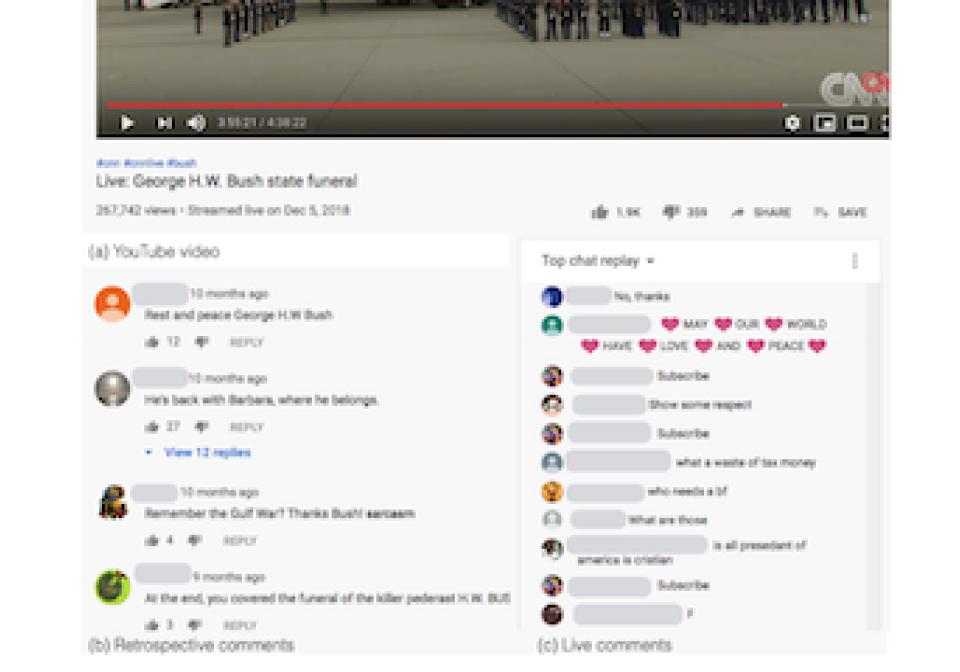|
|||||
| Live streaming services allow people to concurrently consume and comment on media events with other people in real time. Durkheim’s theory of “collective effervescence” suggests that face-to-face encounters in ritual events conjure emotional arousal, so people often feel happier and more excited while watching events like the Super Bowl with family and friends through the television than if they were alone. Does a stronger emotional intensity also occur in live streaming? Using a large-scale dataset of comments posted to news and media events on YouTube, we address this question by examining emotional intensity in live comments versus those produced retrospectively. Results reveal that live comments are overall more emotionally intense than retrospective comments across all temporal periods and all event types examined. Findings support the emotional amplification hypothesis and provide preliminary evidence for shared attention theory in explaining the amplification effect. These findings have important implications for live streaming platforms to optimize resources for content moderation and to improve psychological well-being for content moderators, and more broadly as society grapples with using technology to stay connected during social distancing required by the COVID-19 pandemic. |
|||||
